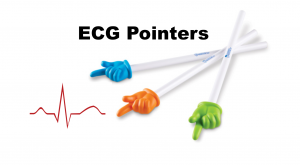Featured

ToxCard: Tianeptine
- 8 min read
- 0 comment
What is tianeptine, and how will those with acute intoxication or withdrawal present in the ED?
WRITE FOR EMDOCS
We are actively recruiting both new topics and authors.
This project is rolling and you can submit an idea or write-up anytime!
Contact us at editors@emdocs.net
Articles
- em@3am
- Erica Simon
- No Comments
A 32-year-old female, with a history of rheumatoid arthritis (methotrexate therapy), presents to the emergency department for severe itching, mouth ulcers, and a diffuse rash. The patient denies recent travel, sick contacts, and new exposures. Review of systems is positive for abscess/cellulitis treatment (cephalexin and trimethoprim/sulfamethoxazole) three weeks prior to
Share this:
- practice updates
- Elizabeth Wolpaw
- No Comments
An interesting case of a patient with lower extremity weakness in the setting of a recent neck wound? Learn more about this curious case and can't miss diagnosis.
Share this:

Join our Newsletter
Keep up to date on all of the latest new articles, studies, and Podcasts.
Popular Posts
-
 30 Aug 2021 0Lactated Ringers versus Normal Saline: Myths and Pearls in the ED
30 Aug 2021 0Lactated Ringers versus Normal Saline: Myths and Pearls in the ED -
 11 May 2022 0ECG Pointers: Atrial Fibrillation with Aberrancy
11 May 2022 0ECG Pointers: Atrial Fibrillation with Aberrancy -
 07 Sep 2016 0Strep Throat Mimics: Pearls & Pitfalls
07 Sep 2016 0Strep Throat Mimics: Pearls & Pitfalls -
 19 Oct 2020 0Puncture Wounds: ED presentations, evaluation, and management
19 Oct 2020 0Puncture Wounds: ED presentations, evaluation, and management -
 18 Jul 2016 0What’s that Rash? An approach to dangerous rashes based on morphology
18 Jul 2016 0What’s that Rash? An approach to dangerous rashes based on morphology
Popular Categories
Podcasts

- By: Jennifer Fishe
- Date: June 23, 2025
PECARN STELAR Podcast – Episode 4: How Researchers Conduct Implementation Science Research
- 2 min read
- 0 comment
Implementation science is the scientific study of how people adopt practices. In healthcare this typically refers to translating evidence based practices into clinical care. Dr....

- By: Jess Pelletier
- Date: June 2, 2025
emDOCs Podcast – Episode 121: Ebola Virus Disease
- 8 min read
- 0 comment
Jess Pelletier and Brit Long cover Ebola: when should you suspect this, what is the evaluation, and what is the treatment?

- By: Brit Long
- Date: May 19, 2025
emDOCs Podcast – Episode 120: Stevens-Johnson Syndrome and Toxic Epidermal Necrolysis
- 8 min read
- 0 comment
The emDOCs podcast covers SJS and TEN.

- By: Rachel Bridwell
- Date: May 6, 2025
emDOCs Podcast – Episode 119: Left Ventricular Outflow Tract Obstruction
- 6 min read
- 0 comment
Rachel Bridwell and Brit Long cover the challenging condition of left ventricular outflow tract obstruction in today's podcast.




